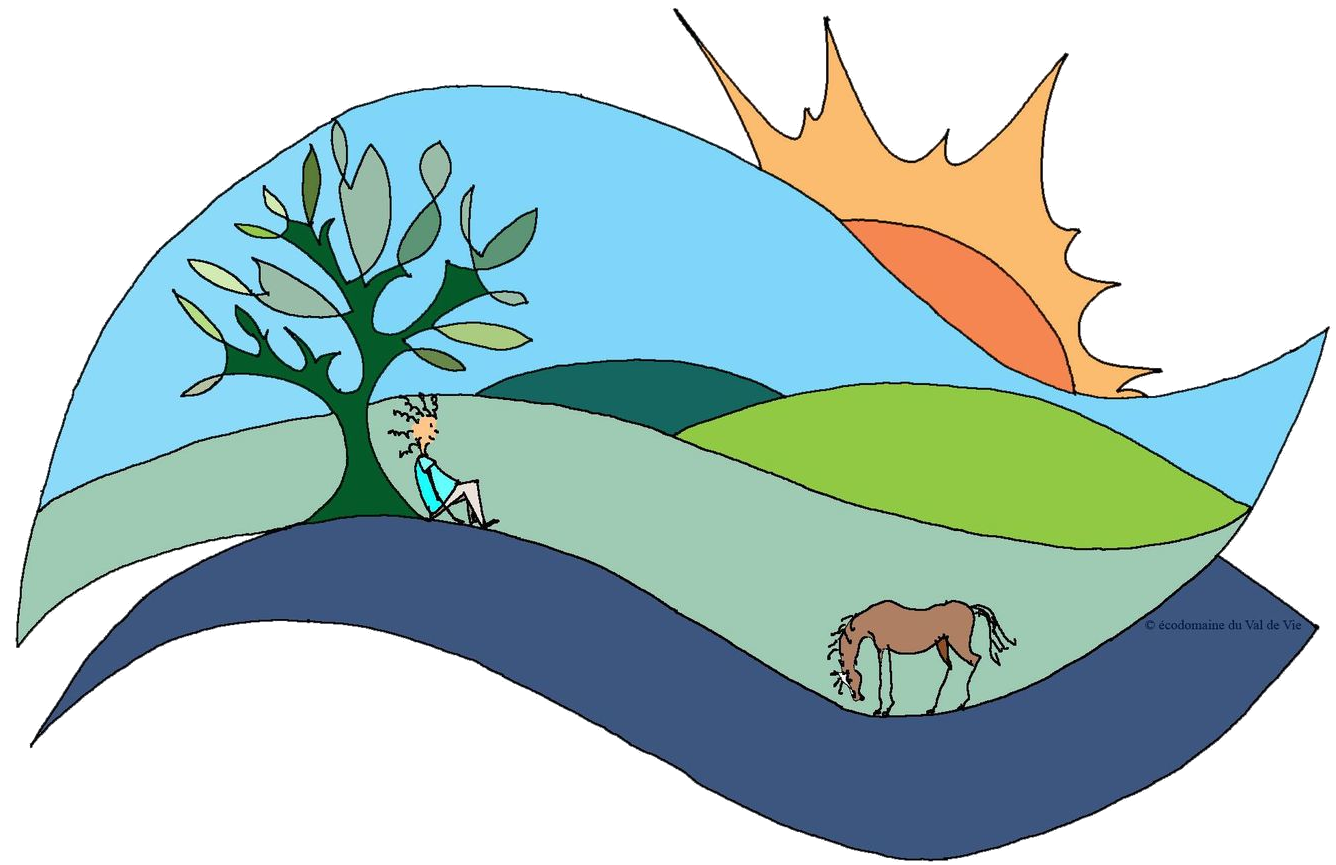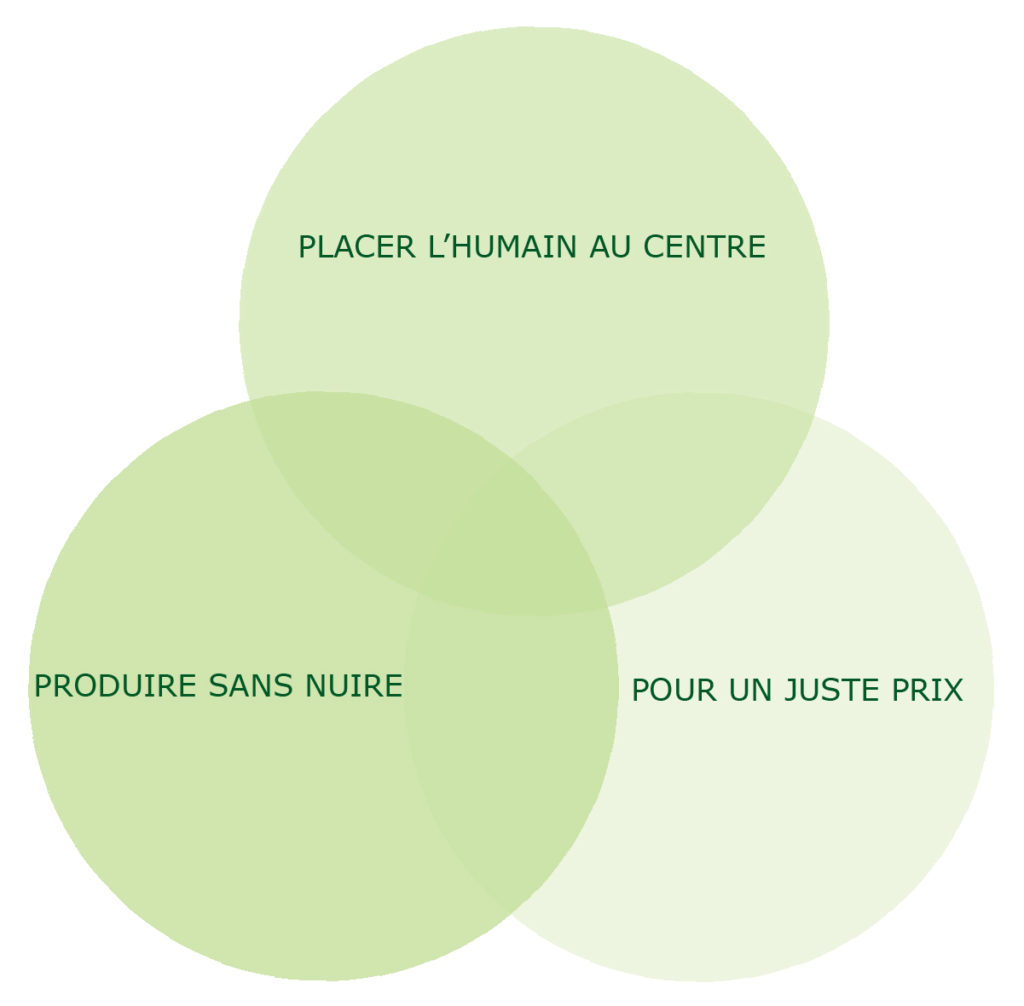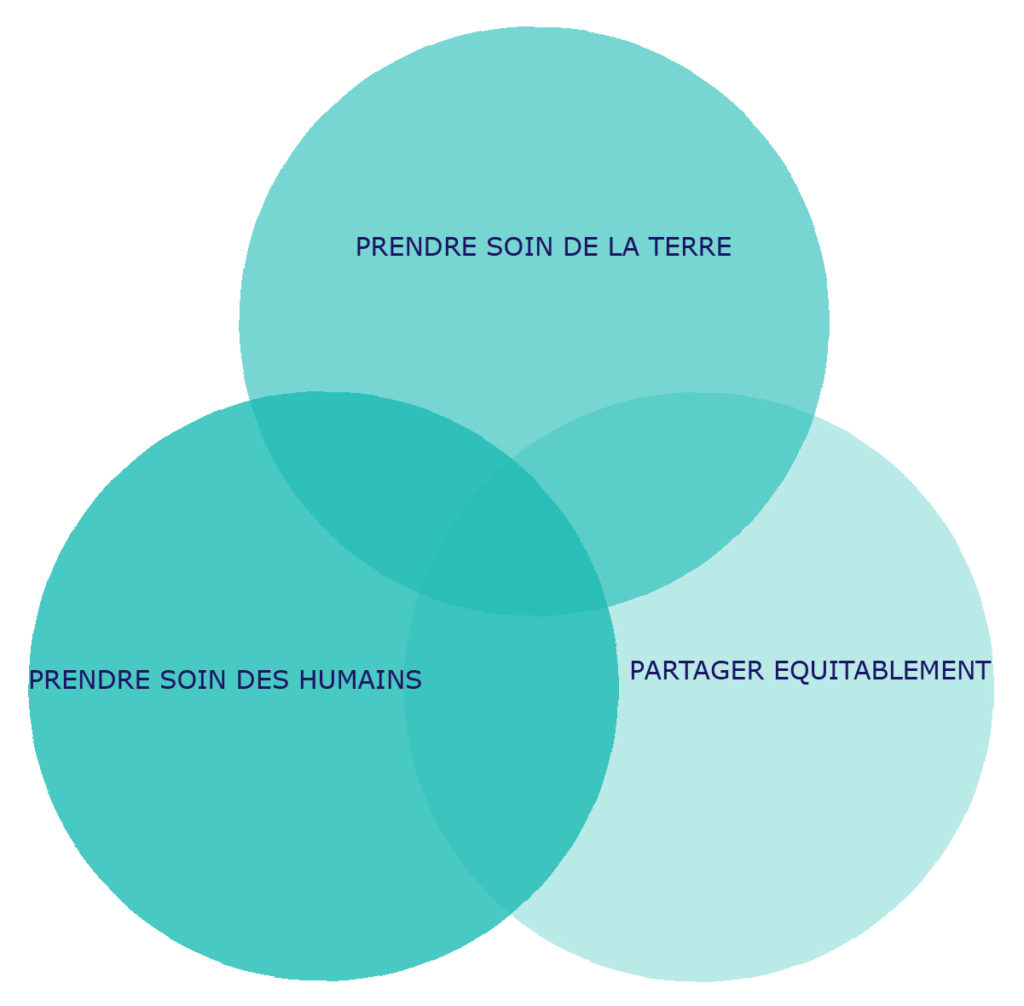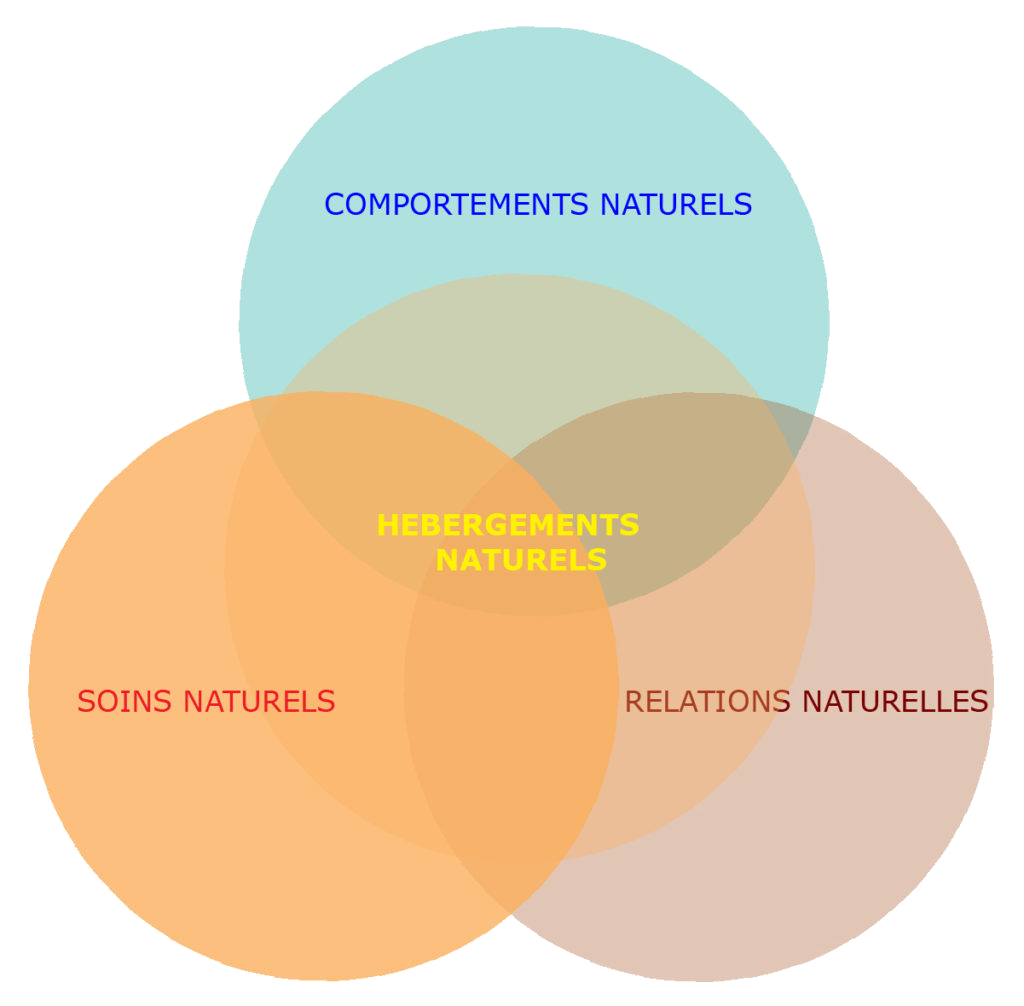What is Equine Permaculture
Foundations
Agroecology
Article L1, II, of the rural and maritime fishing code :
“(…) Agroecological production systems, including organic production, combine economic and social performance, in particular through a high level of social, environmental and health protection. "
Agroecology is often presented as an approach seeking to develop agriculture towards greater respect for the environment and natural ecosystems.
It is an ethical approach that gives a place to man in nature, while emphasizing the respect that humans owe to the earth, to living things.
Permaculture
Article L311-1 of the rural and maritime fishing code :
"Are deemed to be agricultural all activities corresponding to the control and operation of a biological cycle of a plant or animal character and constituting one or more stages necessary for the development of this cycle as well as the activities carried out by a farmer who are in the extension of the act of production or which support exploitation. "
In this sense, permaculture is defined by law as an agricultural activity. It is based on a set of ethics and principles.
Ecology
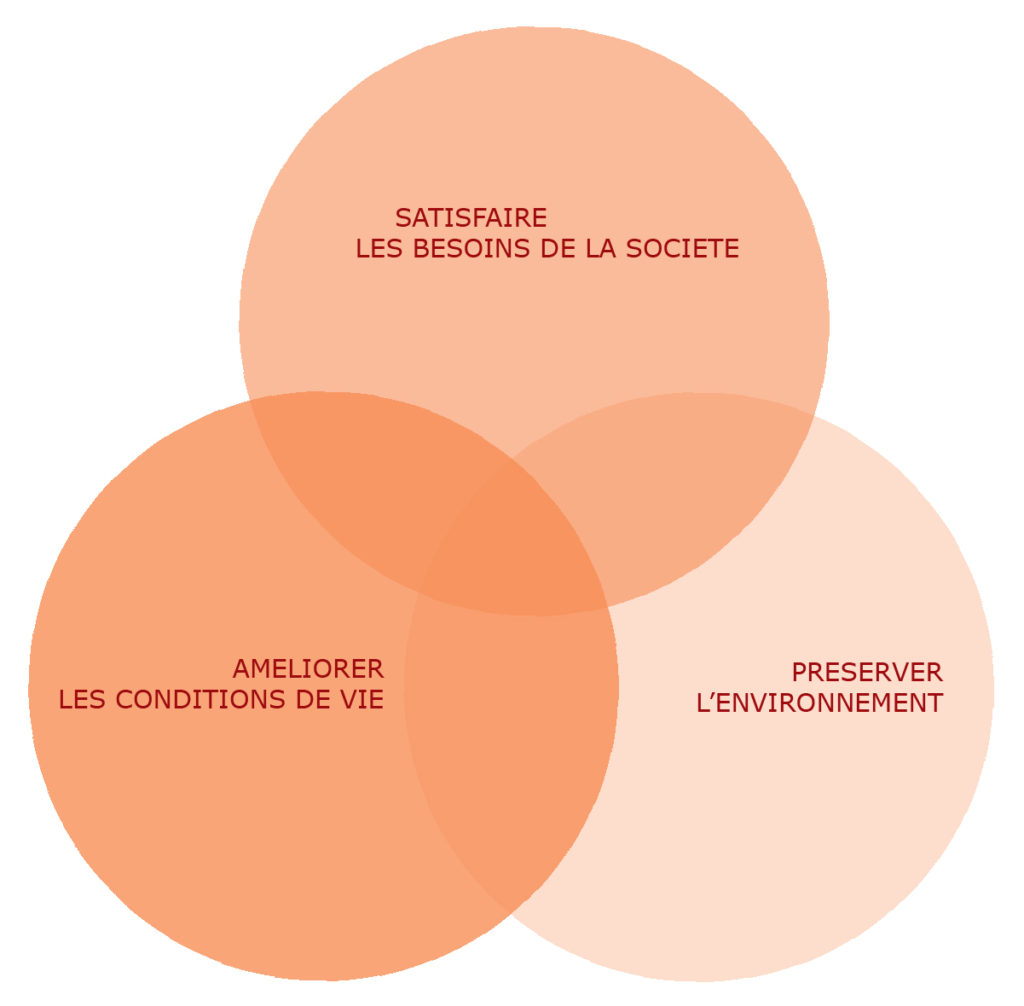
Environmental law is recent (2000) and emphasizes the principles of prevention, precaution, correction by priority at the source, the polluter pays and participation.
Since then, environmental law has been subject to perpetual reforms: ecological concepts are supplemented by the concepts of ecological continuity, ecosystem, ecological processes, geodiversity or ecological solidarity.
Equine Permaculture
“TAKING CARE of the HORSE”
LEquine Permaculture is a 4th ethics to concretely place the horse at the heart of a balanced, sustainable and ethical equine-human ecosystem. This 4th ethic allows us to….
- become the guardians, the stewards of our place of life with our horses to rediscover the sense of our responsibilities to feel again the pride of bien do well and have the pleasure of sharing and transmitting,
- restore and make better the ecosystems where we live with horses,
- create solutions to the problems we encounter, both small and large,
- improve the lives of our horses and improve our daily life with them while preserving our planet.
Horse Ethology
du Cheval
Thanks to the work of ethologists we have scientific studies detailing how horses behave when living in the wild.
We know that domestic horses retain their natural behavioral characteristics: the wild horses studied are actually horses that have been released or escaped to return to the wild (e.g. the Mustangs of the Great Basin in the United States or the horses de Przewalski du causse Méjean in France).
Equine Physiology and Natural Care
To practice the natural care of horses, we can now rely on knowledge in holistic care of bare feet and teeth, on the progress made in natural nutrition, on the management of parasites and vaccination, by limiting all chemicals as much as possible.
Numerous training courses are available to enrich the personal resources of owners so that they can practice natural care themselves, or choose in an informed way the professionals to whom they entrust their horses.
Natural relationship
with the Horse
This approach will focus on the well-being of the horse and its integrity: it prioritizes its natural physical and psychological needs.
Building such a relationship is a learning process combining the lessons of the nature of the horse: ethology and physiology.
Natural Accommodation
Several lines of thought are explored to create new types of accommodation :
- the observation and analysis of what is usually practiced, in order to better understand why it is done so,
- multidisciplinary training to better understand the needs of horses, humans and the environment and know how to meet them,
- the realization that other ways of doing things are possible and the openness to accept the questioning necessary for progress.
Evolution of Natural Accommodation
Many innovative accommodations have been built in recent years. All have their specificities and have adapted to the needs of horses and the humans who care for them.
New accommodations in equine permaculture are emerging, which integrate respect and improvement of the environment, resources, limitations, needs of horses and humans. Accommodation designed for individuals but also for professionals (horse boarding houses, equestrian centers, farms, care centers, etc.).
Design in Equine Permaculture
Designing a Paddock Paradise in equine permaculture is a tailor-made personal approach, which will respond to a large number of parameters, often very concrete (soil, water, plants… costs, planning…) but also intangible elements that 'we call invisible structures (such as regulations, family, social, societal aspects, etc.): this website and the equine permaculture Facebook group are there to help you, accompany you, support you in a process that is both rapid ( an implementation, it starts right away) and long (the path takes the time necessary for nature, no more and no less).
The fourth ethic goes even further :
=> make equine permaculture accessible :
- it is help in choosing an equine property or a boarding house for his horse, so that everyone can find their solution,
- it is also an innovative participatory stable approach allowing owners to offer their horse boarding accommodation while respecting the real value of the manager's work,
- it is also considering disability and illness in site design.
=> take care of horses at old age and at the end of their life :
- cthis approach is one of the aspects of equine permaculture opening up the management of these often more complicated years and the emotions linked to their departure, in benevolence and dignity.
